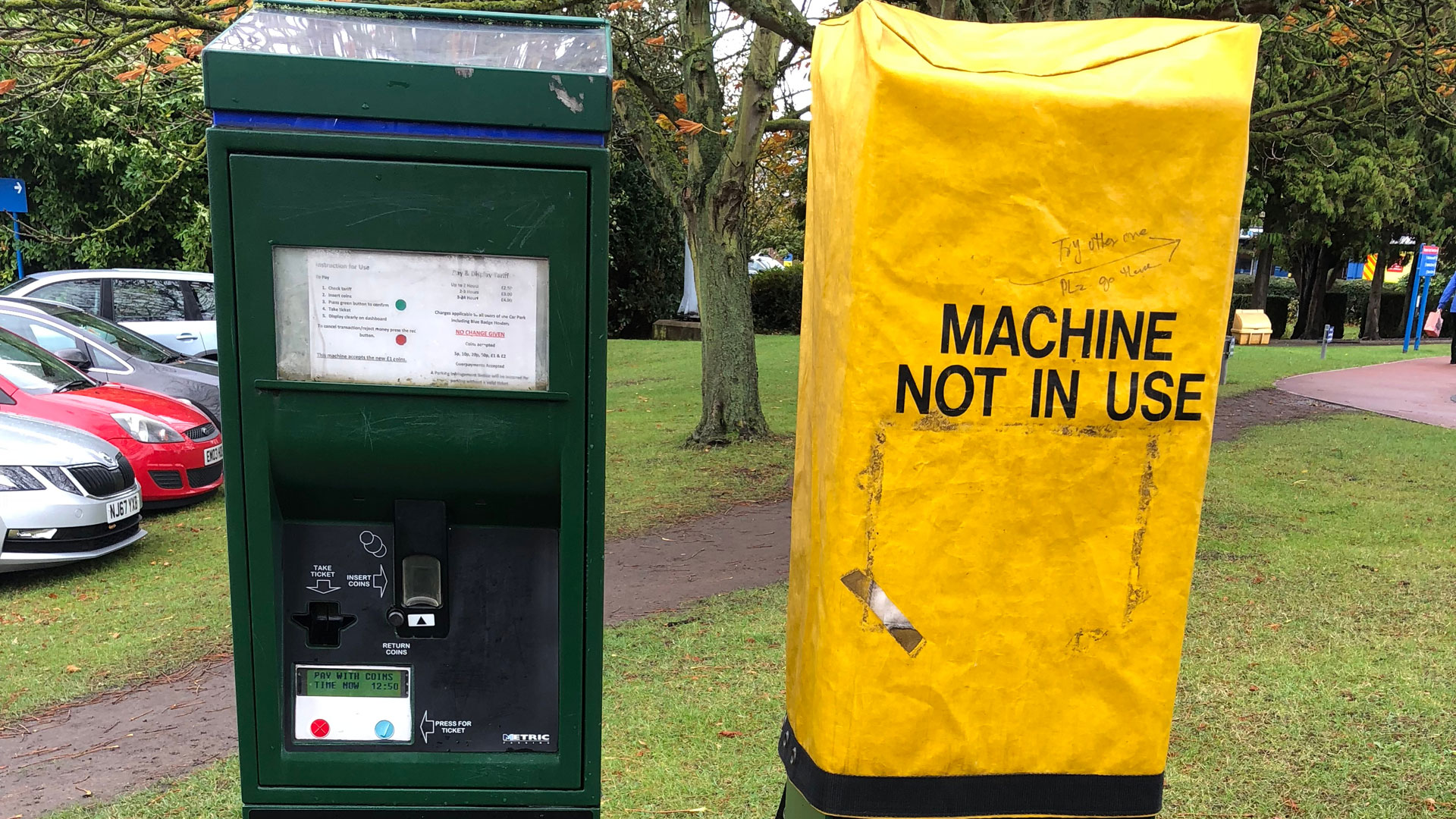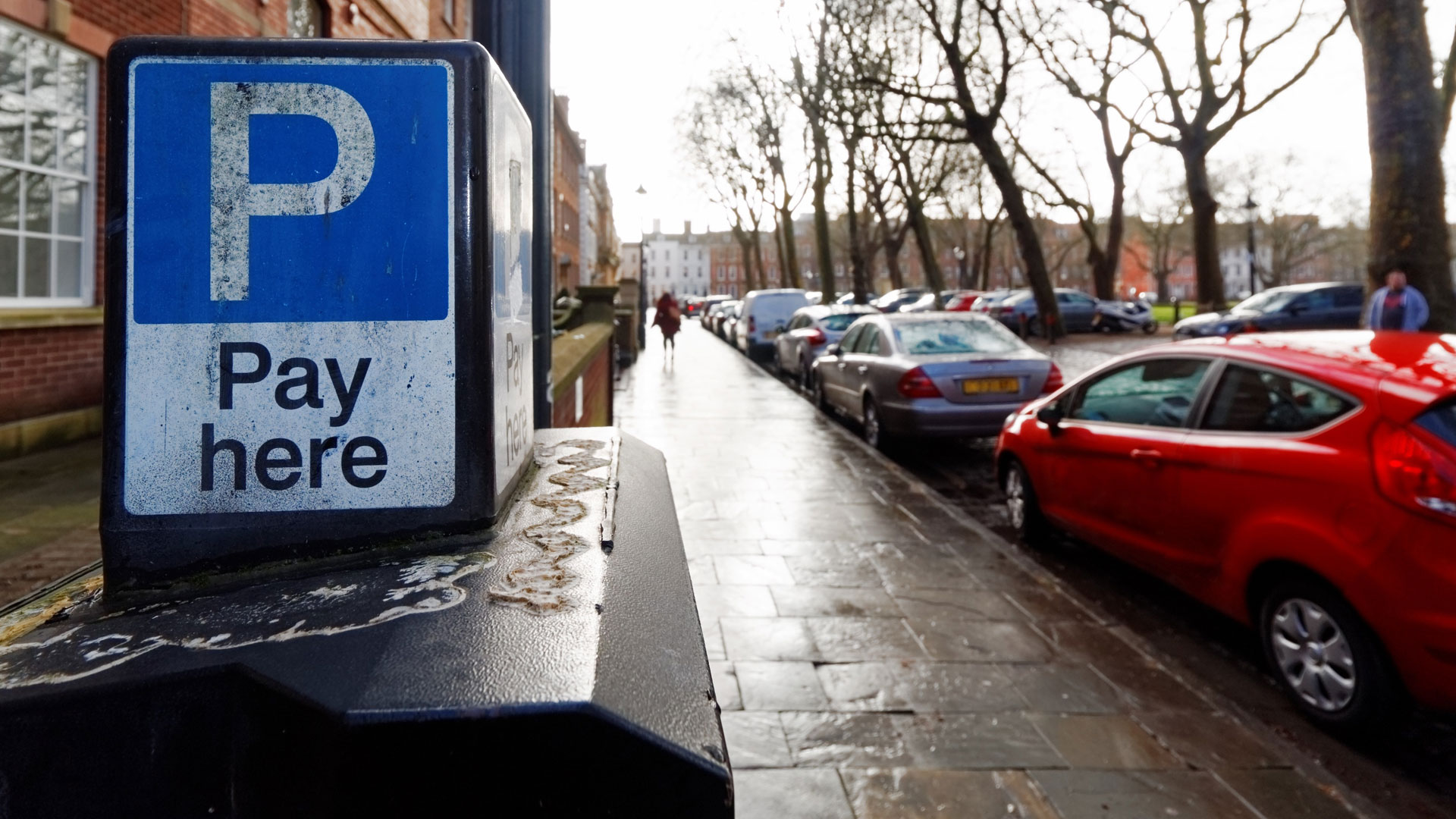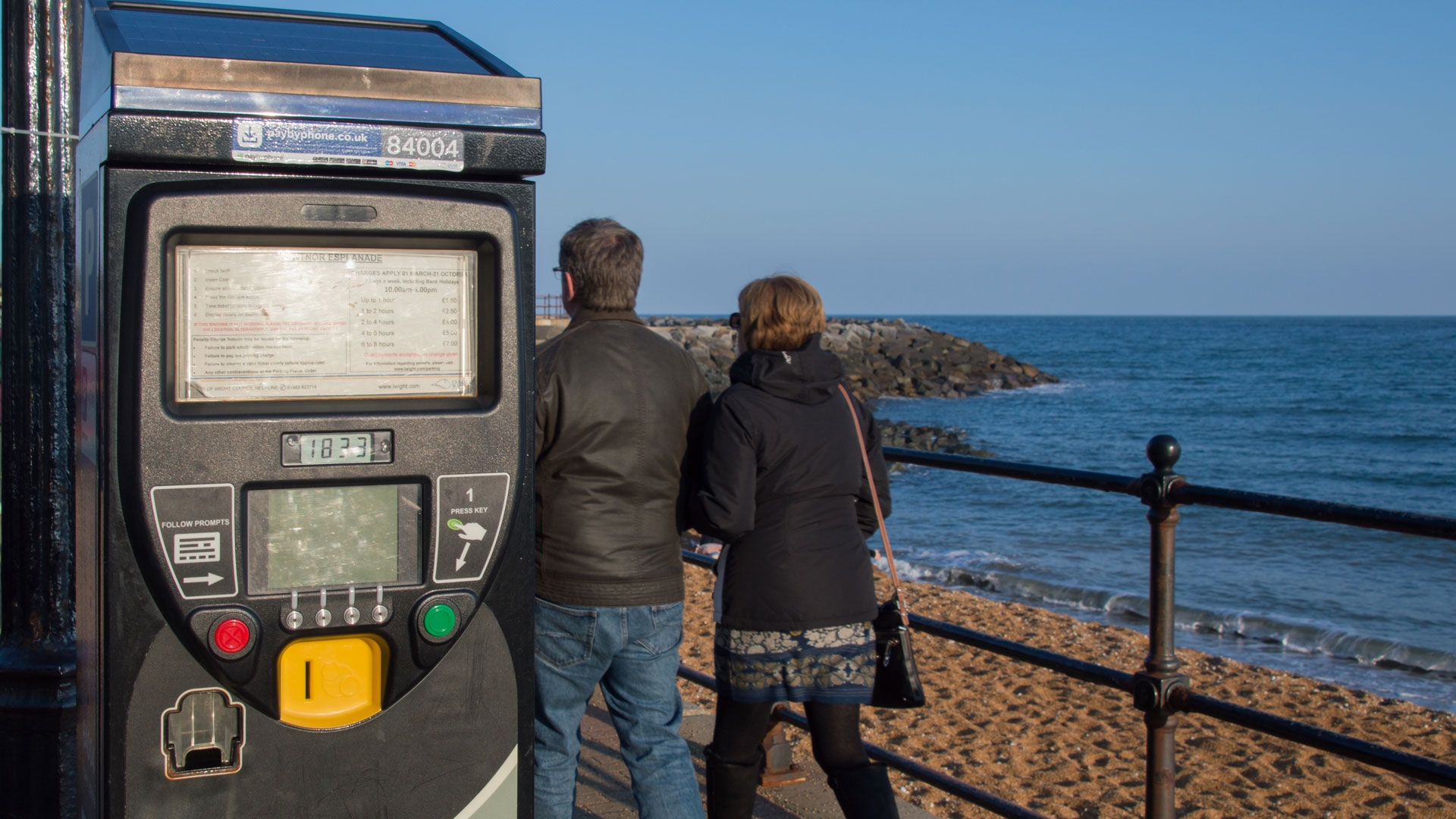
Britain is on the brink of a ‘parking revolution’, as the government announces plans to introduce new technology to car parking.
It could spell the end for the humble car park ticket machine, with motorists using apps to identify and locate vacant parking spaces. And once they’re there, drivers will pay for parking via their smartphone.
It’s all part of new national parking data standards created by the Alliance for Parking Data Standard (APDS) and funded by the Department for Transport (DfT). When in place, the standardised data could transform the way we park as the Oyster card transformed travel in London, the government says.
If the smartphone app can be integrated into the car’s infotainment system – via Apple CarPlay or Android Auto, perhaps – motorists could be facing a stress-free parking experience.
The government says it could free up crucial space, ease congested cities and provide a much-needed boost for British high streets.
‘Brink of a revolution’

Michael Ellis, future of mobility minister, said: “We are on the brink of a revolution for the future of transport, with ground-breaking technologies creating huge opportunities for cleaner, cheaper, safer and more reliable journeys.
“We now need to ensure the infrastructure surrounding these technologies is in place and can accommodate these innovations. The new parking data standards will bring government, private organisations and technologies together to ensure a smoother parking experience for drivers.”
Chair of the British Parking Association and APDS, Nigel Williams, added: “The new standards will enable the next generation of apps and connected cars to find a parking space, park and pay – with little or no intervention from the driver.
“The involvement of the British Parking Association in APDS has ensured that the UK is at the forefront of innovation to improve the customer experience of parking.”

The government will fund research and development projects in Manchester, Oxfordshire, Cambridgeshire and across a consortium of South Essex to the tune of £1 million, with seven further projects being commissioned.
With a standardised language, local authorities and private parking companies will find it easier to exchange data, resulting in a better experience for motorists. Add-on services could include the availability of electric car charging points.
However, the RAC’s head of roads policy Nicholas Lyes urged caution. “There is little detail about what data standardisation means in practice. Indeed, to the driver looking for a place to park their vehicle, it might sound rather obscure.
“However, if the end product results in drivers finding a parking spot more easily, then this is a welcome step.
“In the short term, what is important to drivers is the ability to park and pay with ease. Councils and operators should be providing drivers with multiple payment options, including card options, so they don’t have to fumble around for change, or risk overpaying because they don’t have the right money.”
Lyes stresses that while days of the parking ticket machine may be numbered, local councils shouldn’t forget what’s important today as they fixate on the future.